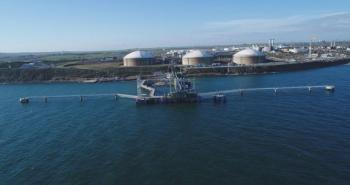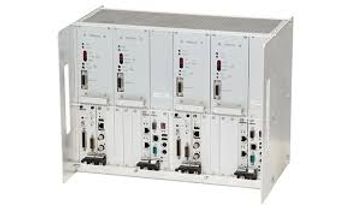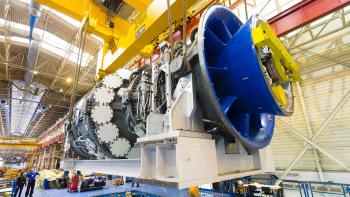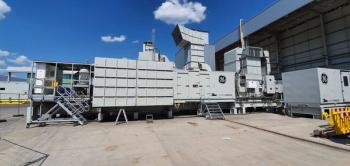
Rolls-Royce to Equip Abra Group’s Airbus Aircraft with Trent XWB-84 Engines
In addition to an improved flying range and reduced noise, the Trent XWB-84 engine has a 15% fuel-consumption advantage over first-generation Trent units.
Rolls-Royce signed a memorandum of understanding (MoU) with Abra Group for five Trent XWB-84 engine-powered Airbus A350-900 aircraft. The A350-900 will be the largest aircraft operated by Abra Group, expanding its international operations and increasing capacity to satisfy growth and connectivity plans.
“We’re delighted to welcome this MoU for five Trent XWB-84 powered Airbus A350—making it the largest aircraft operated by Abra Group,” said Ewen McDonald, Chief Customer Officer, Rolls-Royce Civil Aerospace. “It’s a statement of their ambitions and we’re happy to be part of that.”
The Trent XWB, Rolls-Royce’s large aero engine, can power short- and long-haul flights for both passenger and freighter operations. Leveraging a 15% fuel-consumption advantage over first-generation Trent engines, the Trent XWB-84 flies further with less fuel and features reduced noise levels. It’s currently certified to operate with 50% sustainable aviation fuel (SAF) and capable of 100% SAF usage in the future.
Last week,
The Trent 7000 engines will power Virgin Atlantic’s fleet of seven Airbus A330neo aircraft. The engine’s durability enhancement package more than doubles engine time-on-wing. A hot-section enhancement package will offer an additional 30% improvement. A Trent 7000-equipped A330neo, compared to the A330, maintains 14% better aircraft fuel burn per seat with lower emissions.
Rolls-Royce’s two service agreements include:
- JSX signed 10-year, $300 million TotalCare and SelectCare service agreements for 162 AE 3007A engines equipped across 77 Embraer ERJ-145 and ERJ-135 aircraft
- Vietjet signed a TotalCare service agreement for 40 Trent 7000 engines to power 20 Airbus A330neo aircraft, avoiding more than 100,000 tons of CO2 over each aircraft’s lifetime.
TotalCare offers customers operational certainty by transferring time-on-wing and maintenance cost risk to Rolls-Royce. The service is supported by data from Rolls-Royce’s advanced engine health monitoring system. SelectCare allows operators to purchase a determined number of shop visits at fixed-price, offering flexibility, choice, and cost-certainty. In addition, the program establishes refurbishment shop visit pricing, access to optional services, and ‘green time’ management within the fleet.
Newsletter
Power your knowledge with the latest in turbine technology, engineering advances, and energy solutions—subscribe to Turbomachinery International today.




